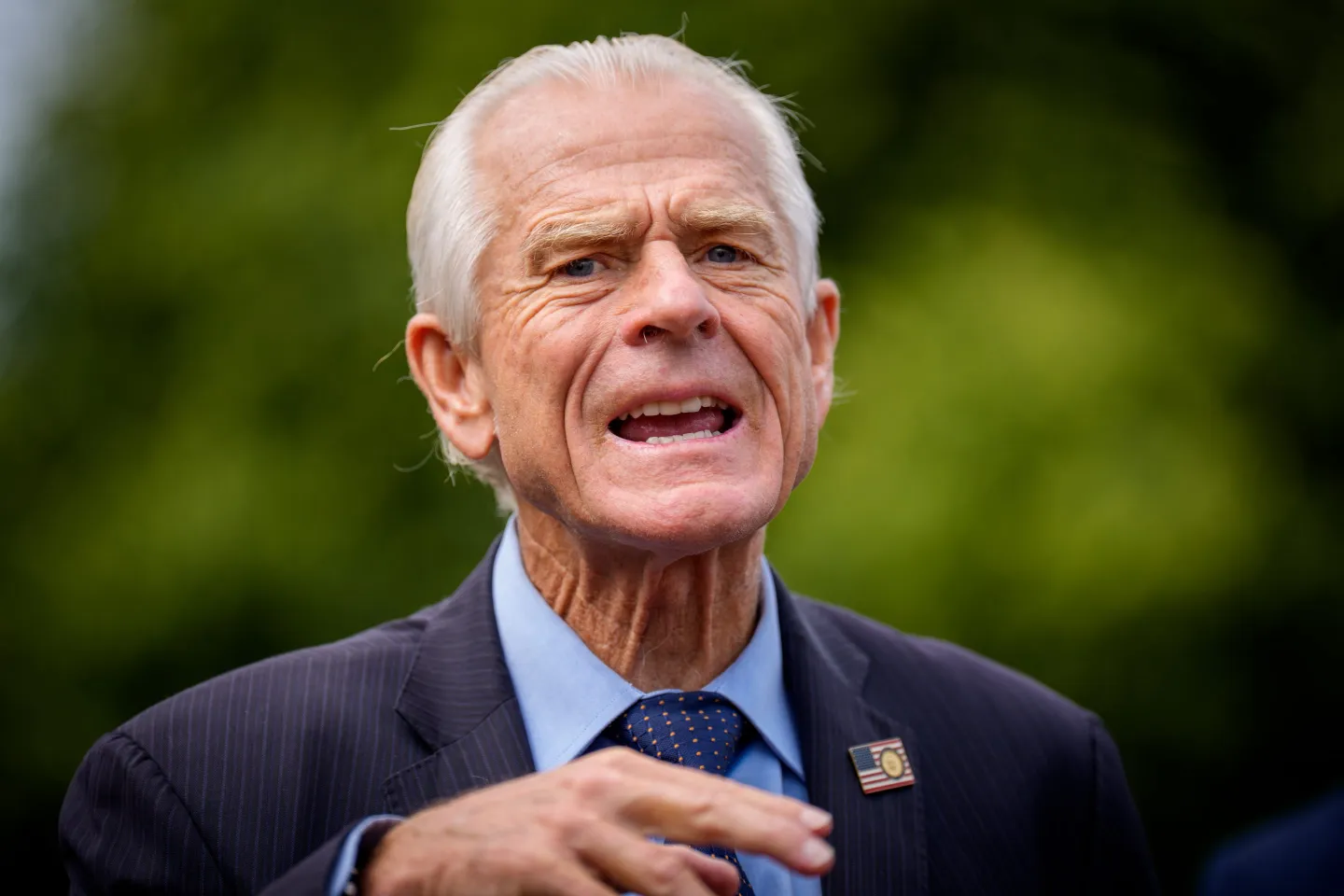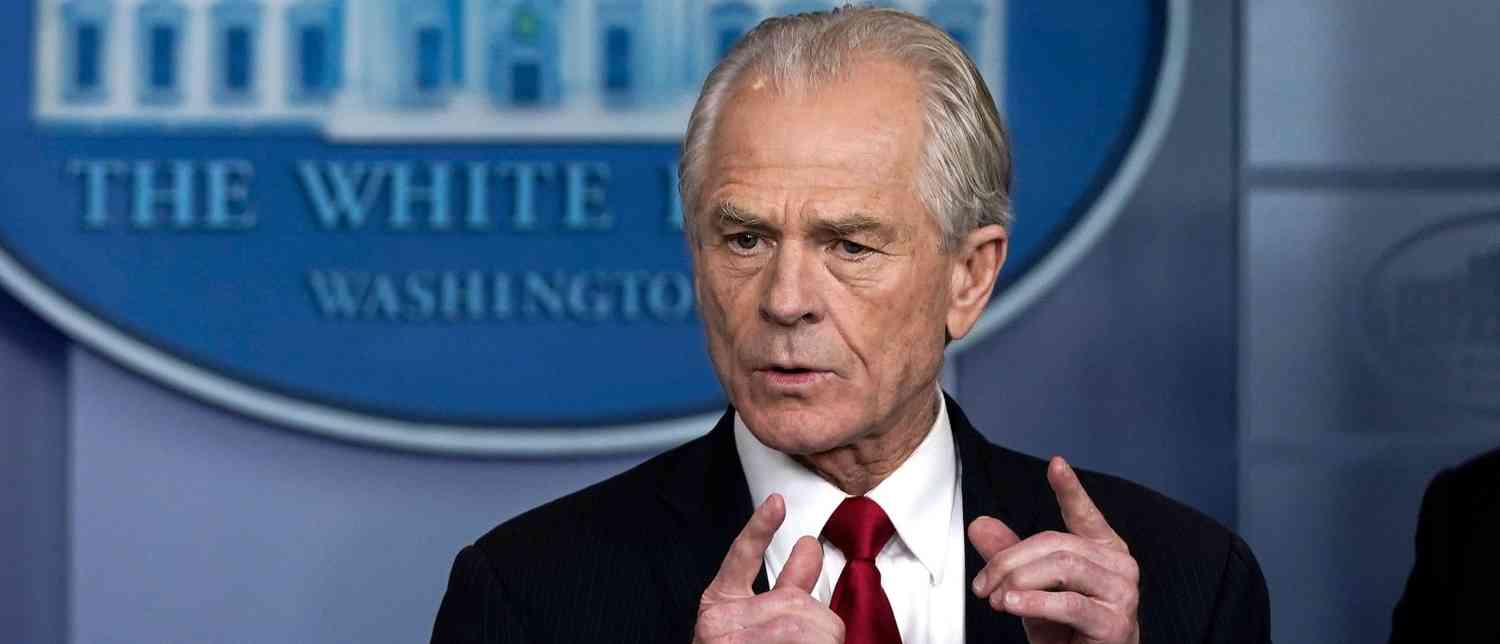India–US relations, long celebrated as a “defining partnership of the 21st century,” are facing fresh turbulence. At the centre of this storm stands Peter Navarro, White House senior trade advisor and longtime Donald Trump loyalist. Over the past weeks, Navarro has repeatedly lashed out at New Delhi for purchasing discounted Russian oil, calling India a “laundromat for the Kremlin” and accusing “Brahmins of profiteering at the expense of the Indian people.”
These remarks, combined with Trump’s newly imposed 50% tariffs on Indian exports, have not only unsettled India’s political establishment but also stirred outrage across social media and diplomatic circles. The controversy, unfolding alongside Prime Minister Narendra Modi’s meeting with Vladimir Putin at the Shanghai Cooperation Organisation (SCO) summit, raises questions about the future of India–US relations in a rapidly shifting geopolitical order.

Navarro’s Harshest Attack Yet: “Profiteering Brahmins”
In a fiery interview with Fox News, Navarro accused India of indirectly funding Russia’s war in Ukraine through discounted crude purchases.
“Look, Modi's a great leader. I don’t understand why he’s getting into bed with Putin and Xi Jinping when he’s the biggest democracy in the world. You’ve got Brahmins profiteering at the expense of the Indian people. We need that to stop.”
Navarro’s remark sparked fury across India, with critics labelling it “racist,” “sinister,” and “casteist.” His use of the term “Brahmin” drew particular ire, as it invoked India’s caste system in a derogatory way. While in American usage “Brahmin” can sometimes denote elite families or wealthy classes—such as the “Boston Brahmins”—in the Indian context, it has deep sociocultural connotations. Many Indian commentators accused Navarro of deliberately invoking caste to fuel anti-India sentiment.
The Russian Oil Dispute: A “Laundromat for the Kremlin”
Navarro’s criticism centres on India’s increasing imports of discounted Russian oil. Before the Ukraine war, Russia supplied less than 1% of India’s crude imports. Today, that number has skyrocketed to over 30%, or 1.5 million barrels per day. India refines this oil and re-exports it—often at a premium—to Europe, Asia, and Africa.
According to Navarro:
“Indian refiners, working with silent Russian partners, are making huge profits while Russia pockets hard currency to fund its war on Ukraine. This isn’t just about India’s unfair trade—it’s about cutting off the financial lifeline India has extended to Putin’s war machine.”
He further argued that American taxpayers end up indirectly funding Ukraine’s defence, while India profits by selling refined Russian oil globally. This, Navarro insists, justifies Trump’s punitive tariffs on Indian imports.
“Boston Brahmin” was once a widely used term in the US to refer to the American New England wealthy elite. “Brahmin” is still a term used in the English speaking world to denote social or economic “elites” ( in this case the rich). The illiteracy on X is astonishing.— Sagarika Ghose (@sagarikaghose) September 1, 2025
Defending Trump’s Tariffs on India
The 50% tariffs imposed on Indian goods have added fuel to the fire. Navarro openly defended them, saying:
“25% of the 50% is because India is the Maharaja of tariffs. They have the highest tariffs in the world. They won’t let us sell to them. So who gets hurt? Workers in America, taxpayers in America, Ukrainians in cities getting killed by Russian drones.”
He even characterised the Russia–Ukraine conflict as “Modi’s War”, a statement widely seen as inflammatory and deeply unfair. The Trump administration insists that the tariffs are both an economic necessity and a strategic tool, echoing Navarro’s long-standing belief that high tariffs are “a good thing” for leverage in trade negotiations.
Navarro insisted the tariffs were “a good thing” that would give the US leverage not just with India but also with China, where tariffs already exceed 50%.
Outrage in India: “Shameful, Sinister, Racist”
Navarro’s caste-linked comment sparked an immediate backlash across the Indian political spectrum.
-
Sanjeev Sanyal, member of the Prime Minister’s Economic Advisory Council, compared Navarro’s remarks to 19th-century colonial jibes, noting parallels to James Mill’s writings and Edward Said’s theory of Orientalism.
-
Priyanka Chaturvedi of the Shiv Sena called the remark “shameful and sinister”, arguing that even if Navarro borrowed the American sense of “Brahmin” as elites, its use in the Indian context was deliberate and harmful.
-
Congress leader Pawan Khera dismissed Navarro’s words as “baseless statements” unworthy of a major global partner.
-
Sagarika Ghose, Trinamool MP, tried to contextualise the American usage of “Brahmin” by referencing the “Boston Brahmins,” but faced criticism for appearing to downplay the racial undertones.
Social media amplified the outrage, with users demanding that Washington hold Navarro accountable. A trending comment captured the mood: “Tell Navarro to stop being racist.”
The usage of the word Brahmin (yes elite Boston Brahmins US context am aware) by someone senior in US Administration cannot come out of the blue in India’s context, this was deliberate. So please sit out on explaining this one.— Priyanka Chaturvedi🇮🇳 (@priyankac19) September 1, 2025
The US Embassy’s Mixed Messaging
Amid the uproar, the US Embassy in India attempted damage control. In a post on X, it declared that the India–US partnership continues to reach new heights, branding it a “defining relationship of the 21st century” under the hashtag #USIndiaFWDforOurPeople.
The timing, however, raised eyebrows—it coincided exactly with Modi’s bilateral meeting with Putin at the SCO summit. Critics questioned whether the embassy’s message was a genuine attempt at reassurance or a thinly veiled warning.
“The partnership between the United States and India continues to reach new heights — a defining relationship of the 21st century.”
Interestingly, the US ambassador’s post remains vacant, with Trump appointee Sergio Gor yet to assume office. This vacuum in diplomatic representation has only fueled perceptions of mismanagement in Washington’s India policy.
SCO Summit: India’s Deepening Russia-China Ties
The timing of these events has added to US unease. At the SCO summit in China, Modi held bilateral meetings with both Vladimir Putin and Xi Jinping. It was his first visit to China in seven years, signalling a renewed focus on regional cooperation outside Western frameworks.
The Tianjin summit spotlighted discussions on a multipolar, de-dollarized world order, signalling the intent of SCO and BRICS nations to reduce dependence on Western-dominated financial systems.
For Washington, India’s balancing act—maintaining strong ties with both the US and Russia—poses a strategic challenge. Navarro’s harsh rhetoric, combined with Trump’s tariffs, risks driving India further toward Moscow and Beijing, undoing decades of careful diplomacy.
Thus, Navarro’s attacks are not merely rhetorical but reflect deeper anxieties about India drifting away from the US orbit.
Who is Peter Navarro?
To understand the controversy, one must understand Navarro himself.
-
Background: Born in 1949, Navarro is an economist with a PhD from Harvard and is professor emeritus at UC Irvine. He authored The Coming China Wars (2006), predicting conflict driven by China’s rise.
-
Trump Loyalist: A key adviser since Trump’s 2016 campaign, Navarro helped shape Trump’s protectionist trade policies. He is seen as one of the main architects of the US-China trade war during Trump’s first term.
-
China hawk: He played a central role in shaping Trump’s aggressive trade war with China, advocating protectionist policies. His 2006 book The Coming China Wars warned about Beijing’s rise.
-
Legal troubles: Navarro was convicted of contempt of Congress in 2024 and served a four-month jail sentence before returning as senior counsellor for trade and manufacturing in Trump’s second administration.
-
Controversies:
-
Navarro was convicted of contempt of Congress in 2024 for refusing to cooperate with the investigation into attempts to overturn the 2020 election. He served a four-month prison sentence, becoming the first former White House official jailed for such a conviction.
-
He has also been accused of fabricating a fictional expert, “Ron Vara,” in his books — a pen name he later described as a whimsical device.
-
-
Current Role: In Trump’s second administration, Navarro is White House Senior Counsellor for Trade and Manufacturing. Despite his prison sentence, Trump appointed him in 2025, praising his loyalty.
Navarro’s hawkishness on China and his combative defence of tariffs make him a lightning rod in international economic policy. His rhetoric toward India reflects this same uncompromising style.
The Larger Picture: India, Russia, and US Strategy
The controversy highlights the larger strategic dilemmas:
-
India’s Energy Security: With rising domestic demand and favourable discounts, Russian oil remains an attractive option for India. New Delhi argues its purchases are driven by economic pragmatism, not geopolitics.
-
US Pressures: Trump’s tariffs and Navarro’s rhetoric suggest Washington is willing to punish India economically to force alignment against Russia.
-
Geopolitical Realignment: India’s engagement with the SCO and BRICS shows its desire for strategic autonomy in a multipolar world — a stance often at odds with Washington’s binary framing of democracy vs. authoritarianism.
A Diplomatic Test for India–US Relations
Peter Navarro’s attacks on India — from labelling its oil trade “Modi’s war” to accusing “Brahmins” of profiteering — have created a storm that goes beyond words. His rhetoric has triggered charges of racism and casteism, strained diplomatic ties, and exposed the fragility of the US–India partnership under Trump’s tariff-heavy policies.
As Washington tries to balance its need for India as a democratic partner against frustrations over its Russia and China ties, New Delhi continues to assert its independent path. Whether the relationship can withstand this turbulence will depend on whether both sides can look past the fiery rhetoric and focus on the long-term benefits of cooperation.
For now, Navarro has ensured that India’s role in the Russia-Ukraine conflict and its position in the global economic order remain under an unforgiving international spotlight.
With inputs from agencies
Image Source: Multiple agencies
© Copyright 2025. All Rights Reserved. Powered by Vygr Media.

























